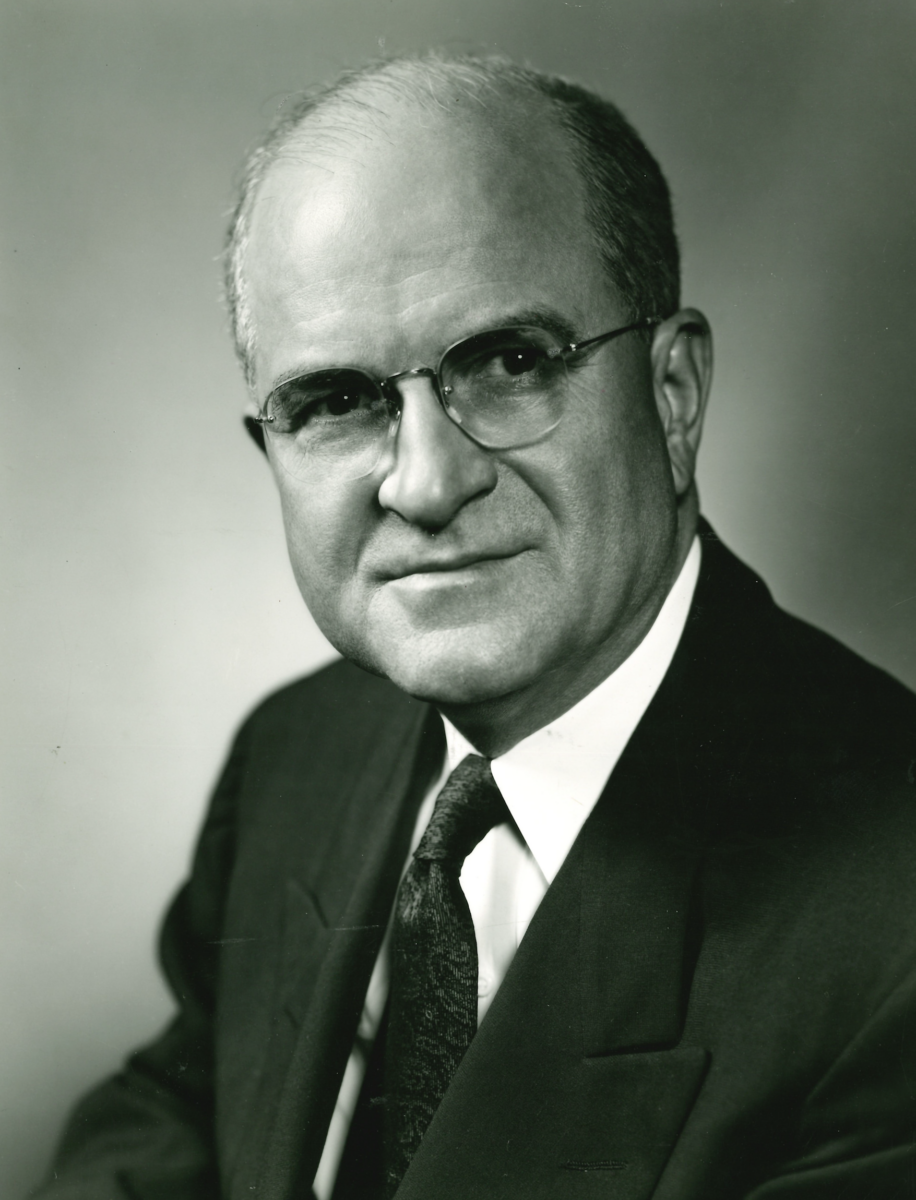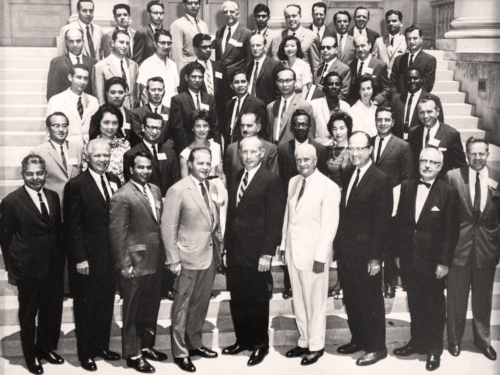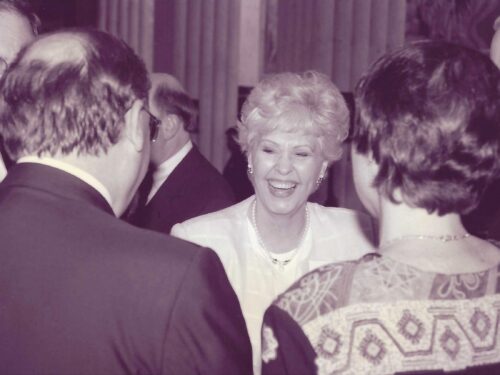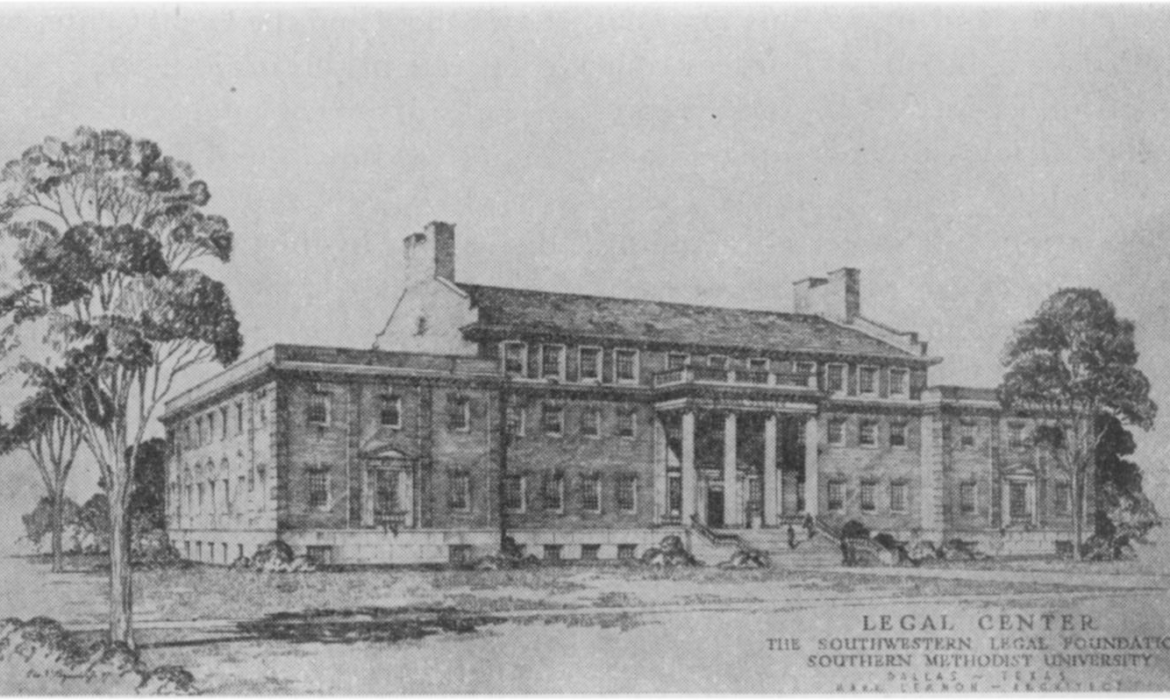
Source: American Bar Association Journal, Vol. 34, No. 2 (February 1948), pp. 121-123
Published by: American Bar Association
| Shared with permission.
The establishment of law centers to organize and integrate the efforts of the teachers of law, the judges of Courts and the practicing lawyers to cope with the complex legal problems of today, is making headway in different parts of the United States. The law schools at Columbia, New York University, the University of Illinois, and Northwestern University, have done pioneering work and planning in this field. Plans for a law center at New York University Law School have been announced, with the funds available. Now a great legal center for the Southwest has been assured by the recent approval of plans by the trustees of the Southwestern Legal Foundation and Southern Methodist University.
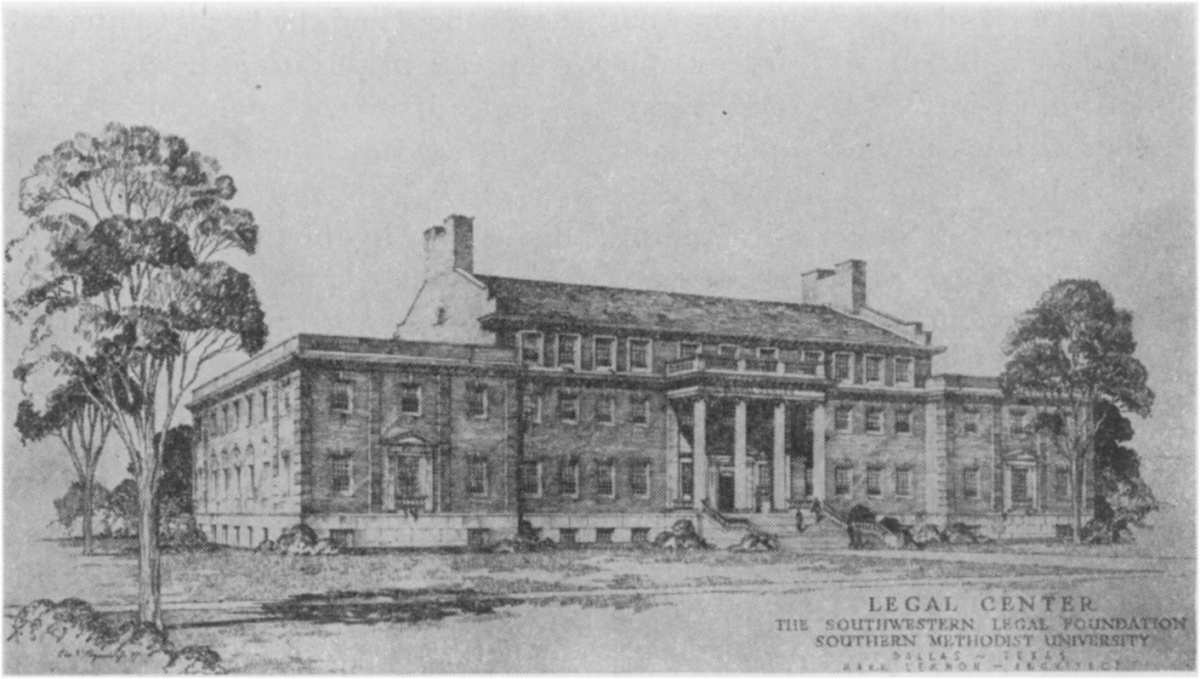
A five-acre tract of land on the campus of the University, at Dallas, has been dedicated for permanent and exclusive use by the Southwestern Legal Center. The area is bounded by four streets, which will separate it from other activities. Construction will start as soon as detailed plans are finished. The project will cost $2,000,000.
Robert G. Storey, Dean of SMU Law School, President of the Foundation, and a practicing lawyer in Dallas, has announced that the approved plans provide for three buildings. The Legal Center building as illustrated will cost $1,000,000, and will contain the Main Library for the Center, the SMU Law School, and the headquarters of the Foundation. One wing will be devoted to research and development of oil and gas law. Appropriately for its region, the Legal Center has as one of its major objectives the creation of an outstanding source of oil and gas law. Since Dallas is in the geographical center of the oil and gas-producing area, research and development in this important branch of the law will be stressed. The law of taxation, insurance, and labor relations will receive special emphasis.
The other wing of the Legal Center building will be known as the International Wing, in which international law and inter-American relations will be featured. Institutes, seminars, and conferences on appropriate subjects will be conducted here. An annual forum on international relations will bring together scholars, diplomats and lawyers who are interested in international law and foreign affairs.
The SMU Law School an Integral Part of Legal Center
A substantial three-story Georgian building now on the Legal Center tract has been made available for the SMU Law School. It will be remodeled to provide for moot courts, seminar rooms, and the facilities of a modern law school. The undergraduate student body has been limited to 300. “Quality and not numbers will be our goal”, said Dean Storey.
The third building will house the Southwestern Lawyer’s Club and the senior and graduate law students. Thus it will bring practicing lawyers and law students together in a present-day “Inns of Court”. One purpose of the Lawyer’s Club is to provide club and forum facilities for lawyers who are interested in re search, institutes, conferences and other activities for the improvement of the profession of law. Membership in the Club will include lawyers from Texas, Oklahoma, Arkansas, Louisiana and New Mexico.
The Southwestern Legal Foundation is an educational and civic non profit and tax-exempt corporation. Its policies and operations are controlled by a Board of Trustees composed of leaders in business, representative lawyers and judges, and outstanding legal scholars. The Foundation will direct all activities of the Center except the operation of the Law School. A mutually satisfactory operating contract has been made between the Foundation and the University. Laymen, lawyers and educators will work together to solve pressing problems of law and the administration of justice. Representative lawyers on the Foundation’s Board of Trustees include J. Cleo Thompson, Hatton W. Sumners, James L. Shepherd, Jr., Walace Hawkins, Robert G. Storey, George A. Butler, J. E. Price, Paul Carrington, Woodall Rodgers, and Chief Justice John E. Hickman, of the Supreme Court of Texas.
Summary of Objectives and Scope of the Southwestern Legal Center
- Research. Study and research are regarded as necessary to develop modern law. Fields of law of special interest to the area served by the Legal Center will be developed. It is anticipated that special grants, fellowships, and specific research undertakings will be initiated by the Legal Center. Behind every institute, lecture, or publication, and behind all activities of the Legal Center, will be the laborious research that makes for progress in the law. Research will be done by some members of the faculty of the Law School, specialists from the profession and in business and governmental positions, and by outstanding students. Research is ineffective unless it culminates in action. The Legal Center will seek results through action.
- Free Legal Aid Clinic. The Center will do what it can to fulfill the responsibility of the legal profession to make available competent legal aid to those who cannot pay for it. The profession of law is regarded as behind the medical centers in professional service to charity patients. Such a plan will provide clinical training for senior law students. The Dallas Bar Association, the SMU Law School and the Legal Center will cooperate in this project.
- Conferences and Seminars. An important function of the Legal Center will be conferences, seminars, and discussions, by thoughtful and experienced judges, lawyers, legislators, law school professors, businessmen, representatives of management and labor, etc., who seek to find solutions for complex legal problems which disturb our people. Experts thus assembled will labor in the quiet and non-controversial atmosphere of the Legal Center but they will defend their work in the forums, in the Courts, and before the public. The question is sometimes asked: “Why not let these experts work in their respective fields?” The judges cannot do it alone because they are restrained by precedent. Members of the Bar by themselves are preoccupied with their work for clients. Law school teachers are not in close contact with concrete cases. But in each group there are men who have been trying to cope with the problems of law and society. Dean Arthur T. Vanderbilt, now Chief Justice of New Jersey, summarized the mission when he said: “Just as the Inns of Court were the haven of their predecessors three centuries ago, so today the Legal Center must become their meeting place and workshop”.
- International Law and International Relations. The world and the law of the international community are alike in a period of crisis. Problems of world organization require knowledge of international law and of foreign affairs. International relations are of vital concern to every citizen. The time has come when people ought to know as much about foreign relations as they do of the baseball scores or the comic strips. Rapid communication and scientific developments have forced Americans to become internationally-minded. World trade knows no boundaries; depressions are not limited to “sovereign jurisdictions”. An outstanding object of a Legal Center is to encourage study of international law and foreign affairs and promote institutes on foreign relations, especially as affecting our relations with South America.
Dean Robert G. Storey commented on the Legal Center idea as follows:
It is designed to modernize legal education. It will be a “clearing house” for legal problems, a forum where lawyers, judges, interested laymen, public officials, professors, and students may coordinate their efforts for the improvement of the law and the administration of justice. Lawyers should welcome the help of laymen. We need laymen to jar the complacency of the legal mind. At the same time we need judges, practicing lawyers, public officials, and legal scholars at the conference table, to bring guidance and seasoned wisdom.
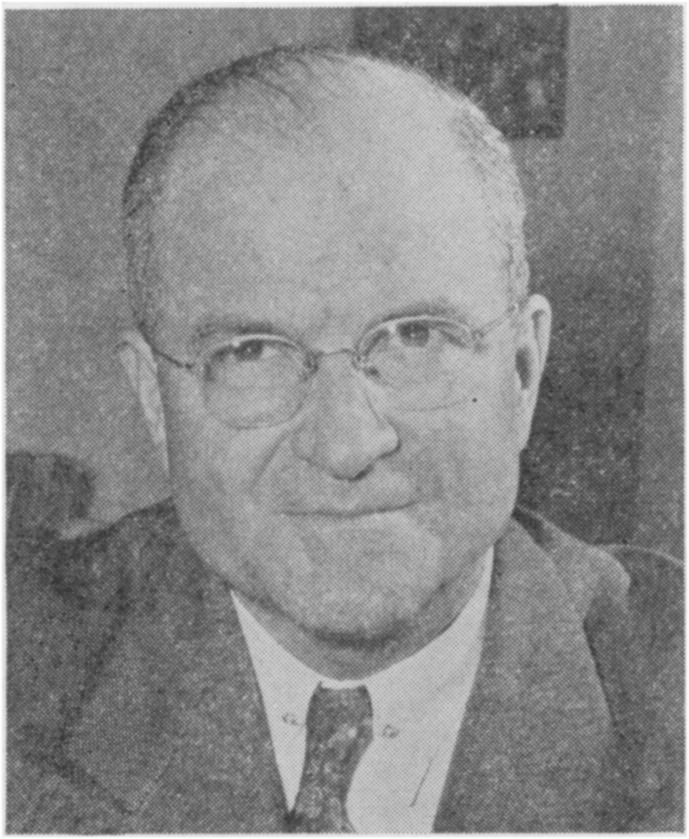
The law school cannot answer the challenge alone. The Legal Center is a post-graduate laboratory for members of the teaching profession, our experienced judges and leaders of the Bar, with the advice of top men in government, industry, and labor. It is a place where the Bar and public may plan laws to the needs of a changing world. Medical centers are common in large cities. Research and experimentation in them have developed effective serums and treatments for disease and pestilence. Research is common in agriculture, science, and other fields. The law has been neglected. It should be so no longer. Our country and the world need the best thought and experience of the best minds, in law and government.
About the Author
Robert “Bob” G. Storey (1893-1981) was the founder of Southwestern Legal Foundation, now The Center for American and International Law.
Storey was a prominent Texas lawyer whose illustrious legal career included being elected the president of the Dallas Bar Association, of the State Bar of Texas, and later of the American Bar Association.

